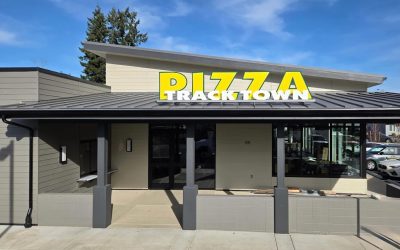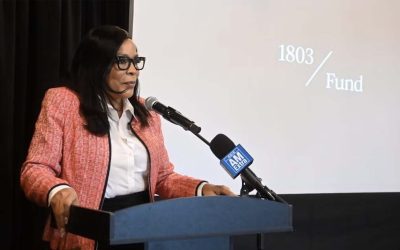Could Oregon Become Canada’s 11th Province? The suggestion, made playfully by Canadian Green Party leader Elizabeth May, has sparked intrigue, humor, and questions about Oregon’s identity. May’s remarks, made at a press conference in Ottawa, came in response to President-elect Donald Trump’s ongoing, and perhaps equally playful, proposal that Canada join the United States as its 51st state. Instead, May turned the tables, proposing that Oregon, along with its West Coast neighbors Washington and California, join Canada instead.
“You think we want to be the 51st state? But maybe California would like to be the 11th province. How about it? California? Oregon? Washington?” May quipped, highlighting Canada’s universal healthcare and stricter gun laws as potential draws for these states. “This is what you get: free health care. Universal free health care. No more GoFundMe campaigns to take your child to the doctor. Guess what? Those gun laws your Congress is too afraid to pass because of the national gun lobby—we’ve already got them.”
The comments, though lighthearted, struck a chord, especially with Oregonians who identify with the progressive values often associated with Western Oregon. Universal healthcare and stricter gun control are policies many in the region support. However, the picture becomes far more complicated when considering Eastern Oregon, a region that has long felt politically alienated from the urban centers of Portland and the Willamette Valley.
Eastern Oregon, known for its conservative values, has been exploring its own bold political shift: joining Idaho. The Greater Idaho movement seeks to redraw state lines to incorporate Eastern Oregon into Idaho, a state more aligned with its rural and conservative culture. For many in Eastern Oregon, the idea of joining Canada—with its socialized healthcare and strict gun policies—would likely be even less appealing than staying part of Oregon.
May’s suggestion brings these divides into sharp focus. While Western Oregon might entertain the idea of becoming part of a progressive Canada, Eastern Oregon’s preference for fewer government regulations and a commitment to Second Amendment rights would make such a proposal a nonstarter. The cultural and political divide within the state is a reminder of how diverse and sometimes conflicting ideologies shape Oregon’s identity.
Trump, for his part, has continued to suggest annexing Canada into the U.S. In a recent post on Truth Social, he claimed that many Canadians “LOVE being the 51st State” and argued that annexation would strengthen trade and security ties. He went so far as to claim that Canadian Prime Minister Justin Trudeau resigned because the country couldn’t “stay afloat” without U.S. subsidies. These remarks, while hyperbolic, underscore the growing tensions in U.S.-Canada relations, which May was quick to address with her counterproposal.
For Oregonians, the back-and-forth between Trump and May serves as a reminder of the state’s unique position on the national and global stage. Oregon’s progressive west aligns more closely with Canada’s values, while the conservative east seeks closer ties to Idaho. Both movements reflect the ongoing challenge of balancing a shared identity within a politically and culturally diverse state.
While the prospect of Oregon joining Canada is highly unlikely, it’s a thought-provoking exercise in imagining alternative futures for the Beaver State. Whether it’s aligning with Canada or Idaho, these discussions highlight the importance of finding common ground and understanding the needs of all Oregonians—urban, rural, progressive, and conservative alike. For now, Oregon remains Oregon, a state defined by its diversity and the often-tense balance of its contrasting identities.













